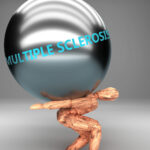Parkinson’s Disease (PD) is a progressive neurological condition that produces a wide range of motor and non-motor symptoms, including tremor, mobility problems, stiffness and balance problems. Most current treatments for this condition act in various ways upon the dopaminergic system, in an attempt to maintain adequate dopamine levels and suppress symptoms.
While there is currently research in progress with regard to specific benefits of medical cannabis in Parkinson’s Disease, there is also evidence of patients self-medicating with cannabis to control symptoms such as chronic pain, stiffness and anxiety.
Medical cannabis and Parkinson’s Disease
Cannabis contains compounds known as cannabinoids, THC (delta-9-tetrahydrocannabinol ) and CBD (cannabidiol). These substances act on the endocannabinoid system in the body, which plays a central role in regulating various physiological functions, including immune response, pain and inflammation. THC produces the psychoactive effects associated with cannabis, while CBD is associated with a range of potentially therapeutic properties, including anti-inflammatory effects.
The ratio of THC to CBD content in a medical cannabis product affects its overall performance, so it is important to obtain it from reliable, professional sources.
THC is thought to have muscle-relaxant properties that may help to alleviate symptoms of pain and stiffness. Its analgesic properties may also be of help in the management of neuropathic and muscular pain.
Chronic pain can also be a feature of the condition and both CBD and THC have shown some promise in reducing pain, possibly by modulation of pain perception through their interaction with the patient’s endocannabinoid system.
Patients with Parkinson’s Disease frequently suffer from sleep disturbance and some find that sleep quality is improved through the effects of medical cannabis on the anxiety and depression that often accompany the condition.
General safety considerations
While there is evidence that medical cannabis may benefit patients with PD, more research is needed to establish its efficacy, optimum dosage and long-term safety.
As with all medicines, care is required. Cannabis may interact with other medications that you are taking and some people experience side effects when using CBD: these include tiredness, changes in appetite, and cognitive impairment.
Individuals considering cannabis as a treatment option for their Parkinson’s Disease should consult with health professionals, and make informed decisions based on their own specific medical history and needs.
If you decide to progress with this approach, your doctor should monitor you closely to manage any side effects.
The quality of the cannabis you are taking is also important. Not all cannabis products are created equal. It is essential to ensure you are taking high-quality, tested medical cannabis products to get the most benefit and avoid harmful effects. NICE advises people to stop any non-prescribed cannabis, including over-the-counter, online and illicit products.
Medical cannabis, Parkinson’s Disease and MyAccess Clinics
In the United Kingdom, although medical cannabis was legalised in 2018, it can only be prescribed by a registered specialist. At MyAccess Clinics, a leading UK medical clinic, our specialists aim to provide high-quality, personalised medical care to those who have tried at least two other types of therapies and treatments. Dr Michal Modestowicz, MD, PhD, MRCP(UK), FEBN, (known to his patients as Dr Mike) is a Consultant Neurologist at MyAccess Clinics specialising in a range of neurological conditions, including Parkinson’s Disease. He trained in both the UK and Poland and he is an advocate of holistic approach to health and wellbeing.






